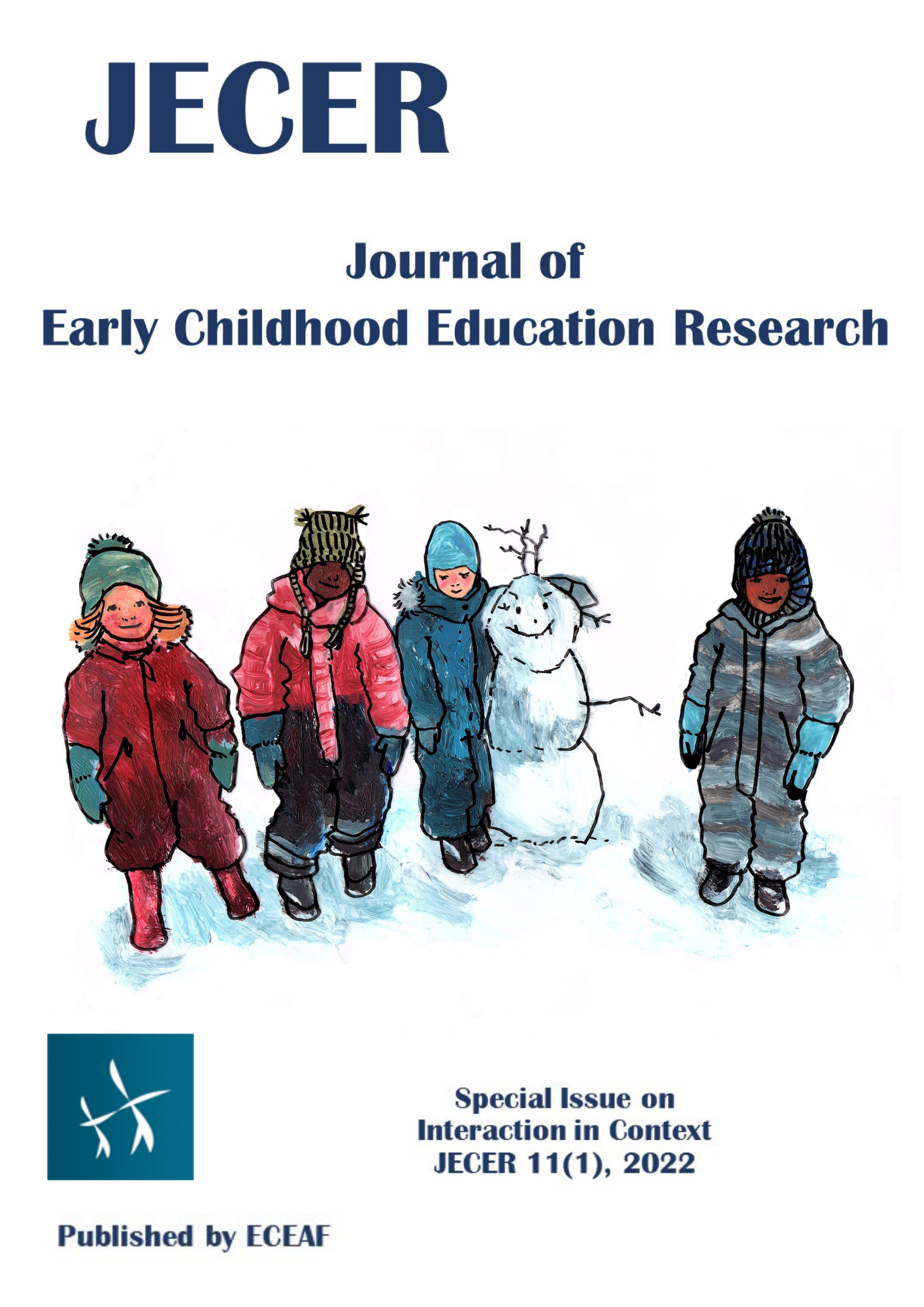Interaction in context: Guest editorial
Abstract
The value of children’s daily interactions in early childhood settings is currently unquestionable. Substantial evidence has shown that interactions are the key drivers for child development and well-being. Still, a number of pressing issues calls for further research. Given their dynamic and reciprocal nature, interactions are highly complex, multimodal and multifaceted, and they are experienced by several individuals, which produces conceptual and methodological challenges. Moreover, although interactions are often examined at the group level, they are always embedded in specific cultural contexts that are part of broader early childhood education and care (ECEC) systems that are guided by different policies, values and norms. Therefore, an in-depth understanding of interactions requires attention to the ECEC context in which interactions take place, including the cultural values, regulations, quality standards and broader societal level. Although interactions are preconditions for human life, development and well-being, it is still very difficult to find a fully aligned and agreed-upon definition for what an interaction actually is. The articles in this special issue highlight the richness of interaction research and diversity of the disciplines, along with the background assumptions involved in what we term interaction. The aim of this special issue is to compile the current discussion about interactions in ECEC by focusing on those who construct interactions in the ECEC context.

